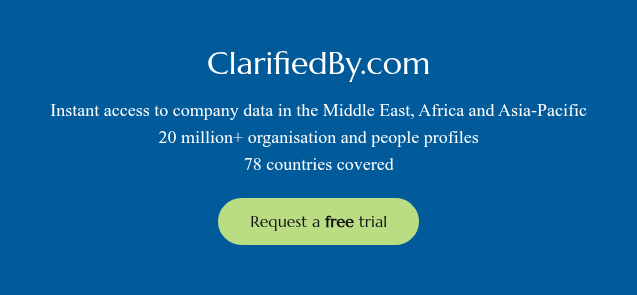Managing business disputes in the Middle East and Africa: Key considerations for success
Read moreHow to avoid common mistakes when expanding in the Middle East
Diligencia's James Redfern recently spoke with Monika Kemp, Country Specialist UAE & Australia at Santander, to explore how companies can avoid common pitfalls when expanding into the Middle East. He emphasised the importance of building a trusted network, accessing reliable corporate data, and conducting thorough due diligence to steer clear of potential red flags. Read the full article below.
The Middle East region is emerging as a hotspot for foreign SMEs as they seek to forge new global partnerships amid the rising turmoil caused by US President Donald Trump’s trade policy.
For many businesses, the potential boost to customers and access to diversified markets in the region’s fast-growing economies is difficult to ignore, according to James Redfern, sales director at Diligencia Consulting, a UK-based company that specialises in corporate intelligence and due diligence in the Middle East and Africa.
However, without the support of trusted partners, making a success of expansion into markets like the UAE and Saudi Arabia can be a real challenge, Redfern says.
Newcomers – particularly small businesses – may find themselves faced with opaque corporate structures, cultural misunderstandings and, in a worst-case scenario, sophisticated trading scams, he adds.
“The initial challenge is not having any reliable contact in the region. If you’re doing a deal with a particular company, you need to know who owns it and controls it for multiple reasons, from global sanctions screening to understanding who is behind the business,” Redfern says.
“If there are inconsistencies between official records and what is presented during your discussion with your client, partner or supplier you have to be able to pick up those signals because it may be an attempt to obscure beneficial ownership or financial liabilities.”
In the Middle East, Gulf nations are at the forefront of strengthening international business ties, as they seek to reduce their reliance on oil exports and diversify their economies. In December, the UAE reported a 14.6% increase in foreign trade for 2024, reaching a record high of AED3tn (US$816.7bn) as the country increased its imports from major markets.
The UAE is also firmly committed to creating a conducive environment for small business. Through its National Agenda for Entrepreneurship and SMEs, launched in 2022, the government aims to increase the number of SMEs and start-ups to one million by 2031 through 29 initiatives and an integrated package of incentives.
Meanwhile, Saudi Arabia's Vision 2030 seeks to raise the SME sector's GDP contribution from 20% to 35%. Recent reforms, including the 100% foreign company ownership law, further support market entry by allowing international firms to operate without local partners, creating more regional opportunities.
For foreign SMEs looking to take advantage of opportunities in the region, Redfern advises both caution and patience.
“Some things as simple as name verifications can be complicated by Arabic naming conventions,” he says, citing the potential for multiple variations of the same name in documents and databases.
It is also important to request audited statements from prospective partners, as many companies in the region are privately held and their financial statements are not publicly available.
But one of the biggest red flags for foreign SMEs when evaluating new partners is the structural opacity of companies, Redfern says.
While countries such as Bahrain, Saudi Arabia and the UAE have made significant progress towards greater transparency, reliable corporate data remains difficult to access in many other parts of the region, he says.
“We have a real-life case where we identified that a prospective partner in the region for one of our clients had multiple dormant companies registered under very similar names,” Redfern says.
“The client later discovered that these entities had been used to move assets between them, which raised serious concerns about financial transparency and could have led to legal complications,” he adds.
“You need to do proper due diligence on the operations and financials of a company to understand the ownership and control structures.”
Redfern also warns that sophisticated trading scams targeting foreign businesses, particularly new companies, have increased in the region in recent years. Fraudulent offers of financing or what appear to be lucrative local partnerships are increasingly common, he says.
"Scams are a constant threat," Redfern cautions. "It would be highly unwise to engage with individuals or organisations without first conducting a thorough due diligence check, particularly if they have approached you unsolicited and are offering financial opportunities without any trusted recommendation. The risks are significant — you could stand to lose everything."
